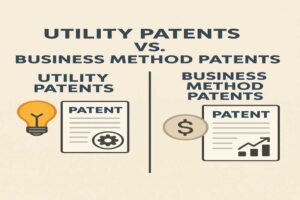At its most basic level, the term ‘deal‘ signifies a sense of agreement or consent in common parlance.
Nevertheless, when we delve into the realm of contract law, the concept of ‘deal’ takes on a multifaceted and more comprehensive meaning. As with any term within the lexicon of the law, it is imperative to accurately and thoroughly comprehend the term to elucidate its legal implications, set out clear parameters of its application, and distinguish it from related but fundamentally different concepts.
In a contractual context, the ‘deal’ is seen as an outward manifestation of reciprocal and harmonious wills, bounded by the consent of the parties involved. It signifies a form of accord that pertains to the terms of consent that one or both parties agree to, limit, or decline.
The scope of a deal can encompass a range of provisions, from simple acknowledgments to elaborate arrangements, thereby reflecting the complexity and flexibility inherent in legal agreements.
The characteristics that define a ‘deal’ separate it from its legal counterparts, namely, a contract, convention, and agreement.
Unlike a contract, a deal does not revolve around a tangible object or material thing. The very foundation of a contract lies in the exchange of obligations or commitments around specific goods or services.
Therefore, a deal can be seen as a prelude to a contract, where parties express consent over terms that might eventually shape the contours of a more concrete contractual agreement.
On the other hand, the demarcation between a ‘deal’ and ‘convention’ or ‘agreement’ lies in the very nature of the obligations they entail. A convention or agreement necessitates that parties involved undertake to consent, and also agree to perform certain actions or refrain from acting in a specific way. This differs significantly from a ‘deal,’ where the essential element is not about acting or refraining from an action, but rather the manifestation of a mutual understanding or concord of wills.
One could argue that the concept of ‘deal’ adds a nuanced layer to the contractual landscape. By its very nature, it serves to illustrate the preliminary stages of legal relationships. This phase of mutual consent forms the bedrock of more substantial legal commitments. In this sense, the ‘deal’ can be regarded as the ‘cement’ that binds potential contractual relationships.
In practical terms, the ‘deal’ often represents the initial stages of negotiation, where parties outline and discuss their intentions and conditions before entering into a more comprehensive and binding contract. The deal phase is where parties have the flexibility to offer, decline, or modify terms without the binding repercussions that a signed contract would enforce. The deal, therefore, serves as a kind of ‘testing ground’ for parties to navigate their potential commitments and obligations.
To illustrate this further, consider the situation of an entrepreneur pitching a business proposal to potential investors. At this stage, there might be a ‘deal’ in which the entrepreneur agrees to provide detailed business plans, financial forecasts, and other requested documentation to the potential investors. This ‘deal’ does not promise investment but rather signifies a consent to share and consider information. It’s a crucial phase that could lead to a binding contract of investment, depending on the outcome of the review and negotiation process.
Interestingly, the concept of a ‘deal’ also has significant implications in the world of dispute resolution. It can be used as a form of settlement, where parties agree on specific terms to resolve their dispute without going to court or further pursuing legal proceedings. Here, the ‘deal’ becomes a strategic tool, an agreement of terms that allows parties to avoid the potential uncertainties and costs associated with litigation.
Further dissection of the term ‘deal’ reveals a powerful vehicle for communication, negotiation, and strategic decision-making. It is important to highlight that the concept of a ‘deal’ transcends mere acceptance or rejection of terms. It is a dynamic and fluid process that allows parties to examine, analyze, and modify the terms of their relationship, before plunging into binding obligations under a contract, convention or agreement.
For instance, in the domain of real estate, a potential buyer and seller might come to a ‘deal’ before the formal sale agreement is drafted and executed. This ‘deal’ may outline the broad conditions of the sale, such as the price, timeline, and potential contingencies. The parties have not yet solidified these into a contractual obligation but have merely agreed on the basic framework for the forthcoming agreement. The ‘deal’ stage can be crucial in defining the terms of a potential contract and lays the groundwork for more detailed negotiations.
In business acquisitions and mergers, the role of a ‘deal’ is often pivotal. Here, the term ‘deal’ is often used to denote the larger negotiation framework within which companies, shareholders, and stakeholders agree upon terms for the potential merger or acquisition. This process is characterized by a series of smaller ‘deals’ that include terms for due diligence, share transfer, management changes, and so forth. Again, the ‘deal’ does not represent a legally binding obligation but rather sets the stage for more in-depth and formal agreements.
The utility of a ‘deal’ extends beyond the realm of commercial and business contexts into socio-political arenas as well. International diplomacy often employs ‘deal-making’ as a mechanism for dialogue and negotiation between nations. For example, peace treaties, trade agreements, and diplomatic alliances all start as ‘deals’ before they are solidified into more formal agreements. This initial stage allows nations to explore possibilities and terms without immediately committing to a binding international treaty.
Moreover, the ‘deal’ operates within a broader framework of equity, fairness, and good faith. The parties involved in crafting a ‘deal’ should exercise honesty, disclose all necessary information, and avoid any deception or misrepresentation. It is here that the ‘deal’ assumes an ethical dimension, ensuring transparency and respect for the mutual trust that underlies the consent of the parties involved.
Therefore, a ‘deal’ is not just a legal concept but also an ethical principle that advocates for open and honest communication between parties. It underscores the importance of fostering a sense of trust and mutual understanding, which forms the cornerstone of all legal relationships, from contracts to treaties.
From this perspective, it becomes clear that understanding the concept of a ‘deal’ is not just an exercise in legal semantics. Rather, it is about comprehending the underlying philosophy of contractual relationships and negotiations. The ‘deal’ represents the spirit of mutual consent and the importance of clear, honest, and respectful communication in the formation of legal agreements.
To sum up, the concept of a ‘deal’ in legal parlance is a versatile one, with broad-ranging implications. It plays an essential role in defining the boundaries and structures of more substantial legal instruments such as contracts, conventions, and agreements. As a manifestation of mutual consent, a ‘deal’ is not only the foundation upon which more formal legal relationships are built, but it is also a dynamic tool that can shape negotiation tactics and dispute resolution strategies. Understanding the essence and function of a ‘deal’ is, therefore, paramount in navigating the complexities of contractual relationships and the wider legal landscape.
The concept of a ‘deal’ is a cornerstone of legal relationships, offering a nuanced perspective on the nature and formation of agreements. It forms an essential foundation for legal obligations under contracts, conventions, and agreements, shaping the course of negotiations and the resolution of disputes. Understanding the ‘deal’ in all its depth and breadth is therefore vital for legal professionals, parties involved in legal relationships, and for anyone seeking to navigate the complexities of the legal landscape. Its versatility and dynamism render the ‘deal’ an indispensable instrument in the lexicon of the law.







